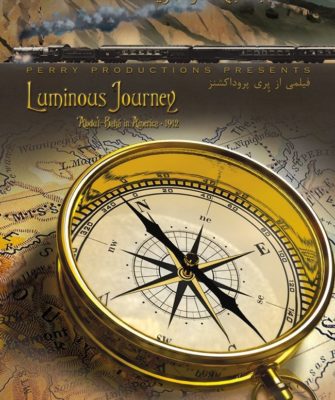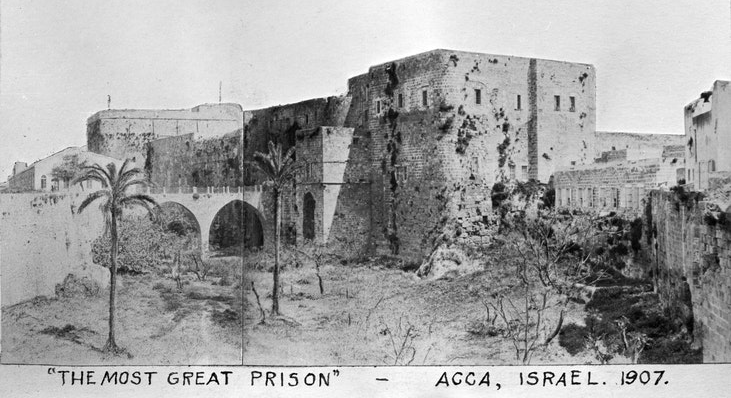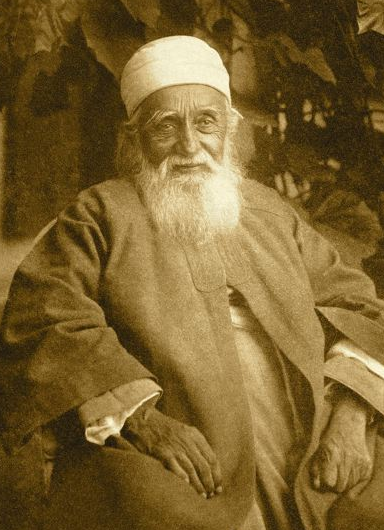



Source: ‘Abdu’l-Baha on Divine Philosophy
‘Abdu’l-Baha enjoyed a privileged childhood until fierce persecutions broke out against the Bab’s followers—of whom Baha’u’llah was the most prominent. From the age of 12, He served His Father and also shared the burden of Baha’u’llah’s suffering through multiple exiles and imprisonment. He was released from a lifetime of imprisonment, as a result of the Young Turks revolution in 1908.
Shortly after His release, He was asked the following:
__________________________________

“We are glad that you are free!”
With a wonderous smile.”Freedom is not a matter of place. It is a condition. I was thankful for the prison and the lack of liberty was very pleasing to me, for those days were passed in the path of service under the utmost difficulties and trials, bearing fruits and results.
“Unless one accepts dire vicissitudes he will not attain. To me prison is freedom; troubles rest me; incarceration is an open court; death is life and to be despised is honor. Therefore, I was happy all that time in prison. When one is released from the prison of self, that is indeed freedom, for self is the greater prison. When this release takes place, one can never be imprisoned. They used to put my feet in stocks so,” and he put out his feet before him to illustrate and laughed as though it were a joke he enjoyed.
“I would say to the guard ‘You cannot imprison me, for here I have light and air and bread and water. There will come a time when my body will be in the ground and I shall have neither light nor air nor food nor water, but even then I shall not be imprisoned.’ The afflictions which come to humanity sometimes tend to center the consciousness upon the limitations. This is a veritable prison. Release comes by making of the will a door through which the confirmations of the spirit come.”
This sounded so like the old theology that the modern within me rebelled doubting if the discipline really compensated for the effort.
“What do you mean by the confirmations of the spirit?” I asked.
“The confirmations of the spirit are all those powers and gifts with which some are born and which men sometimes call genius, but for which others have to strive with infinite pains. They come to that man or woman who accepts his life with radiant acquiescence.”
Radiant acquiescence — that was the quality with which we suddenly seemed inspired as ‘Abdu’l-Baha bade us good-bye.
It was a remarkable experience, hearing one who had passed along the prison path for forty years declare, “There is no prison save the prison of self”; and it drove conviction to the heart as this white-robed messenger from the East pointed the way out; not by renunciation, but by radiant acquiescence — the shining pathway out of the “greater prison of self.”


![]()
![]()
Whether you are exploring the Bahá'í Faith or looking to become an active member, there are various ways you can connect with our community.
Please ensure that all the Required Fields* are completed before submitting.